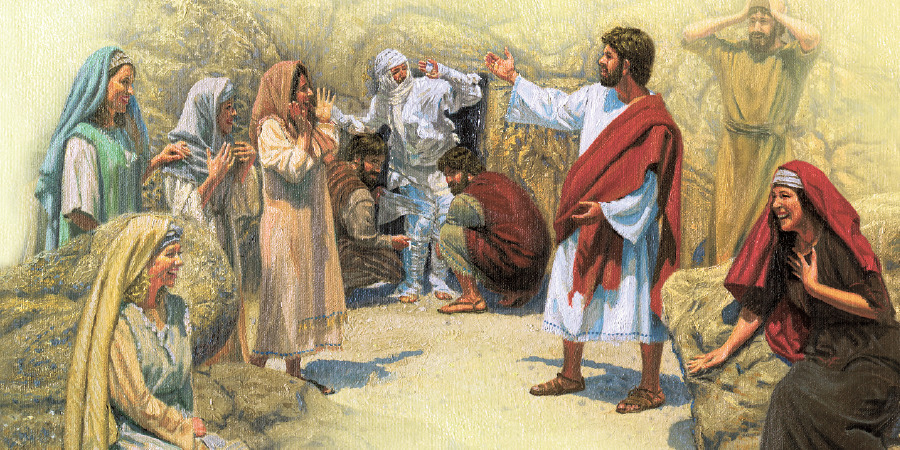

I Am The Resurrection and the Life (11:25-27)īut this is not what Jesus means. “Your brother will rise again.” You can almost see her nodding through her tears that she knows her brother will be raised in the last day. “He is in a better place.” “He is not suffering anymore.” “He is home with God.” We say these things and it sounds like Jesus is saying something similar. We say these kinds of things to each other at a funeral. “I know that he will rise again in the resurrection on the last day.” Martha has taken Jesus’ words as generic words of comfort, just as we do at funerals. “Your brother will rise again.” Martha acknowledges this truth. Jesus says something that sounds like the comfort that many would have given Martha. Though she is hurting, grieving, and disappointed, she knows that Jesus is the master and God will do whatever he asks.

Even more so, she knows that her brother would not have died if Jesus has been there. This is what it means to call Jesus, “Lord.” Jesus is the master and we are the servants. She recognizes that she is the disciple and Jesus is the master. True disciples maintain their faith in the face of disappointment. Even though my brother died, I still believe even now that you can do whatever you ask of God. Rather, Martha is expressing her continuing faith in Jesus even though she is disappointed. She is not thinking about Lazarus raising from the dead at all. The reason we know this, even though her words sound like the desire for Jesus to raise Lazarus from the dead, is it is Martha in verse 39 who resists the removal of the stone from Lazarus’ tomb. We must observe that Martha is not asking Jesus to raise Lazarus from the dead. Verse 22 is just as important as she expresses her dependence on Jesus’ will in this matter. She is absolutely acknowledging the power of Jesus. I wish you would have been here because I know that my brother would not have died.

She had hoped Jesus would have come at her message. If you had been here, my brother would not have died. We should not read these words as a condemnation of Jesus. But even now I know that whatever you ask from God, God will give you” (11:21-22). “Lord, if you had been here, my brother would not have died.
Listen to the hard, painful words of Martha. Mary did not go out to meet him but remained in the house. When Martha heard that Jesus was coming, she went out to meet him. Further, we need to have in mind the condition of Lazarus as Jesus begins talking to Lazarus’ sisters. The Greek is simply, “He already stinks.” The NLT reads, “The smell will be terrible.” People are not walking into this stinking tomb. Most of the translations are softening the language for our human sensibilities. He’s been dead four days and he is going to stink. Notice in John 11:39 that the family is aware that this is the condition of Lazarus’ body. The smell of the body is distinct, horrible smell as gases are entering the body and will begin to force the liquids of the body out. The body bloats due to putrefaction and the abdomen turns green.
#Lazarus resurrection john skin
The color of the skin of the body changes dark red. This is called the bloat stage in forensics. On the fourth day the human body shows visible decay. For the first three days there is no physical appearance of decomposition. The Jewish mind considered a person truly dead with no hope of resuscitation or resurrection on the third day. When Jesus arrives at the tomb of Lazarus, Lazarus has been in the tomb for four days. Once Lazarus dies, Jesus and his disciples begin to travel back to Judea, to the town of Bethany, so that Jesus can “awaken him” (11:11). Rather than going to Lazarus immediately so he could heal him, Jesus remained where he was and let Lazarus die. The message has been sent to Jesus that Lazarus is sick and is going to die.


 0 kommentar(er)
0 kommentar(er)
